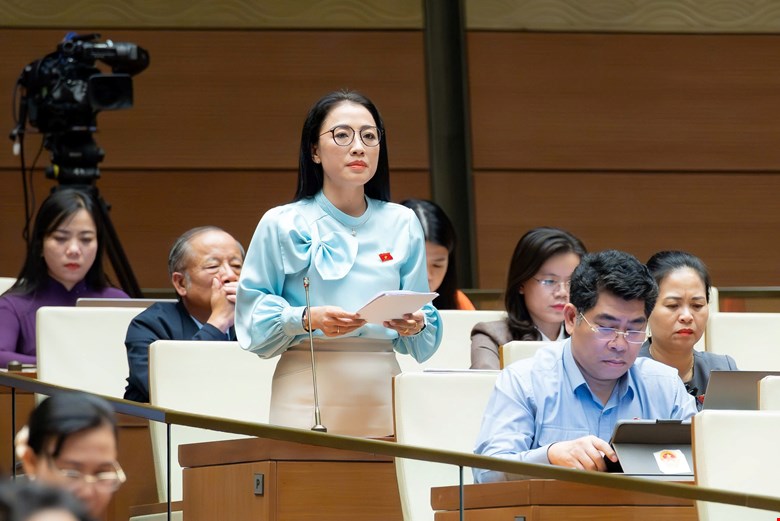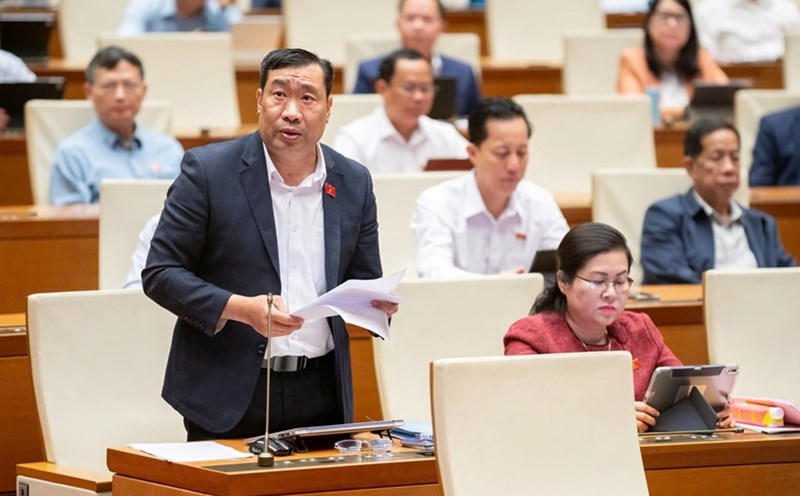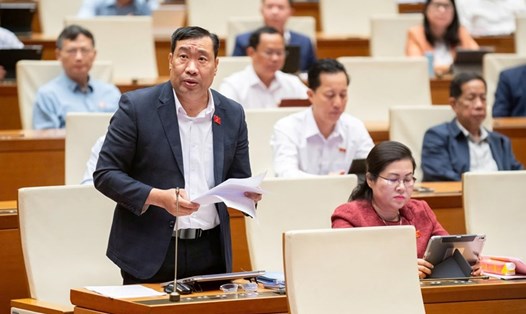On the afternoon of November 10, the National Assembly discussed in the hall the draft Law on Disease Prevention.
Delegate To Ai Vang (Can Tho Delegation) was interested in the content of the state's policy regulations on disease prevention.
The delegate proposed to add the phrase "implementing allowances and preferential treatment according to occupation for civil servants and employees working at public health facilities" to Clause 1, Article 3 of the draft law.
The complete content of the draft law is: The State plays a leading role in implementing allowances and preferential treatment according to occupation for civil servants and employees working at public health facilities and mobilizing social resources for disease prevention activities.
The female delegate said that this addition aims to promptly institutionalize the conclusions and resolutions of the Politburo and the National Assembly on salary reform and special allowance regimes; Clearly demonstrating the concern of the Party and State in prioritizing resources for the work of protecting, caring for and improving people's health.
When the allowance regime is clearly regulated in the law, it will help civil servants and employees at public health facilities, especially those working in disease prevention, feel secure in contributing, contributing to reducing the situation of unemployment. Thereby, it also contributes positively to the development of the preventive health system, grassroots health care and reducing the burden on upper-level hospitals. This is an important basis for the Ministry of Health to soon submit to the Government to issue a new decree to replace Decree 56 of 2011.
The draft law also needs to specify that the state budget increases expenditures on health care and allocates at least 30% of the health budget for preventive medicine.
Because Resolution 72-NQ/TW of 2025 of the Politburo on a number of breakthrough solutions, strengthening protection, care and improving people's health has clearly stated the guiding viewpoint of properly identifying the position and role of preventive medicine and primary health care.
Preventive medicine not only focuses on infectious diseases but also includes non-communicable disease prevention, chronic disease management, mental health care, school health, and food safety, to improve the overall health of the people.

Delegate Tran Khanh Thu (Hung Yen delegation) said that we do not have a close and interconnected coordination mechanism between health - government - community, causing the disease prevention system to operate disjointedly, lacking proactiveness and overall strength.
The delegate suggested adding 1 Article to regulate the unification of the model of preventive health organization, synchronously from the central to the grassroots level; especially clarifying the role and responsibility of health stations when under the management of the People's Committee of communes and wards, and how the system of connectivity between provinces and communes is when it is necessary to transfer human resources in two directions.
And especially, professional operations need to have a unified coordination mechanism across sectors, with the participation of the government but ensuring the professionalism and discipline of the health system.
The delegate cited the bidding for vaccines in 2022 when the Central Government did not bid, transferred them to localities, leading to nearly a year without being able to buy vaccines, then transferred them to the Central Government for bidding.
"Now we are moving to the commune health station, which is the public service unit that will bid to ensure efficiency or not," the delegate wondered.











